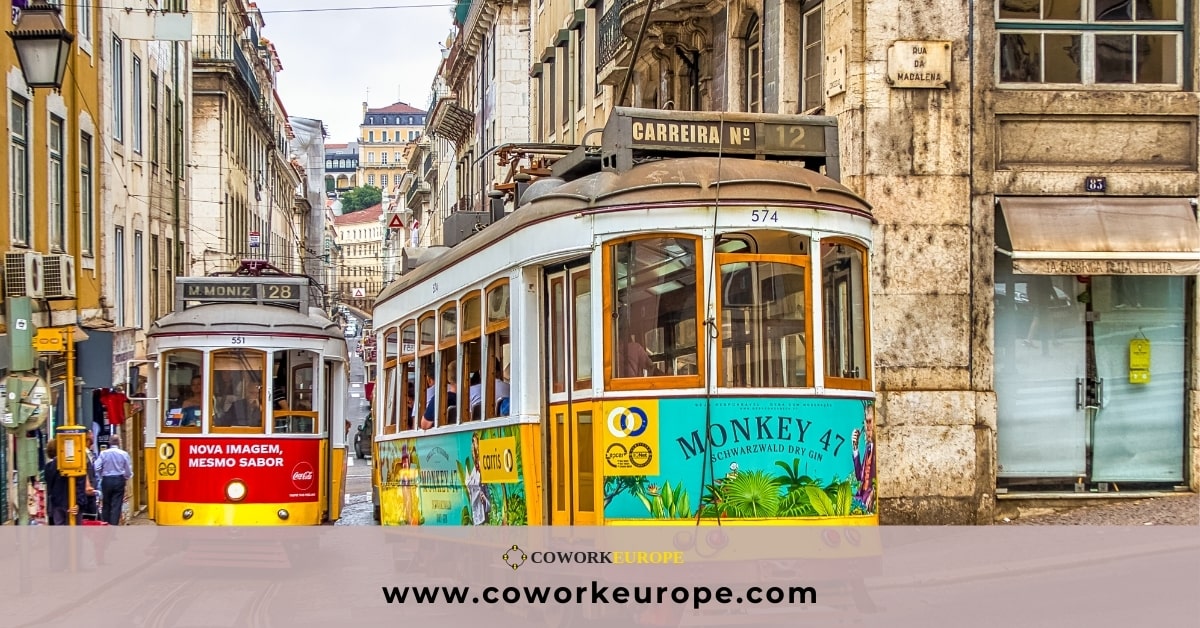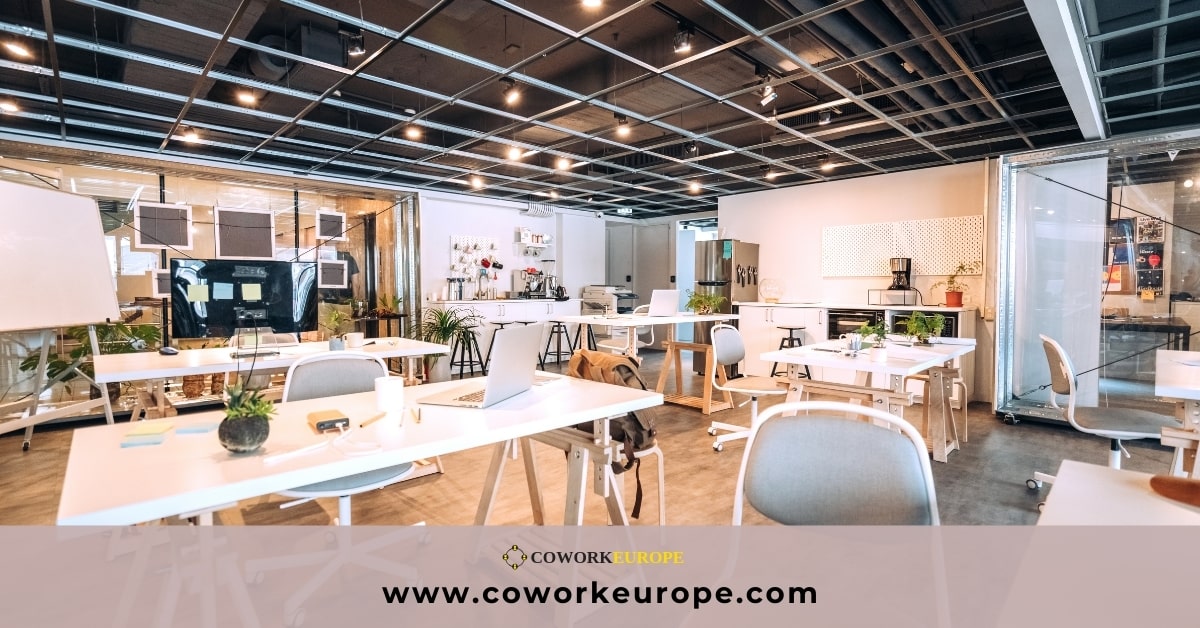Co-working spaces have witnessed exponential growth in recent years, transforming the traditional work environment into a dynamic and innovative landscape. This collaborative workspace model has redefined the way people work, offering a range of benefits that go beyond merely sharing office space. People who use co-working spaces often experience a greater sense of purpose and fulfilment in their work, in part due to the opportunities for meaningful collaboration and the ability to bring their authentic selves to work. In this article, we will explore the profound impact of co-working spaces on the modern workforce and how they contribute to meaningful and purpose-driven careers.
The Co-Working Revolution
Co-working, often referred to as a collaborative workspace, is more than just a trendy buzzword; it represents a significant shift in how individuals and businesses approach their work environments. These shared spaces have become a popular choice for entrepreneurs, freelancers, remote workers, and even established companies seeking flexible and cost-effective alternatives to traditional offices.
The Origins of Co-Working
Co-working as we know it today has its roots in the early 2000s when a few innovative entrepreneurs and freelancers sought to create a more supportive and collaborative work environment. The concept aimed to offer shared office spaces that encouraged networking, idea exchange, and community building, ultimately fostering a more enriching work experience.
The Co-Working Experience
Collaborative working spaces typically feature open layouts, private offices, conference rooms, and various amenities like coffee bars, high-speed internet, and even recreational areas. These elements are designed to create an environment where professionals can seamlessly switch between focused work and networking, enhancing the overall productivity and creativity of its members.
The Meaningful Work Connection
In recent studies, it has been observed that co-working spaces often enable individuals to see their work as meaningful, irrespective of the nature of their tasks. This new sense of purpose can be attributed to several key factors.
Autonomy and Project Selection
One of the driving forces behind the meaningful work found in collaborative working spaces is the autonomy given to individuals in choosing their projects and work. Freelancers in particular, have the freedom to select projects that align with their interests and passions. This personal connection to their work leads to a deeper sense of meaning and fulfilment.
Bringing One’s Whole Self to Work
Another crucial aspect is the ability to bring one’s whole self to work. Co-working spaces often promote an inclusive and diverse community where people can express their unique identities, both personally and professionally. This acceptance of individuality fosters an environment where people feel valued, leading to greater job satisfaction.
While we’ve discussed the benefits and meaning found in collaborative working spaces, it’s important to note that many people refer to these spaces as collaborative workspaces. The term “collaborative workspace” accurately describes the primary function of co-working spaces, which is to encourage collaboration and cooperation among its members.
The Role of Collaboration
Collaboration is at the heart of what makes co-working spaces so unique. Members are often encouraged to interact, exchange ideas, and even work together on projects. This dynamic fosters innovation, professional growth, and the creation of meaningful connections.
Cross-Industry Networking
Collaborative workspaces often host a diverse range of professionals from various industries. This diversity encourages cross-industry networking and knowledge sharing, which can lead to ground-breaking innovations and new opportunities.
The Impact on Productivity
Beyond meaningful work and collaboration, co-working spaces have been shown to significantly enhance productivity among their members. This increased efficiency can be attributed to a variety of factors unique to these spaces.
Eliminating Distractions
Co-working spaces provide an environment specifically designed for focused work. With the absence of common household distractions or the noise of bustling coffee shops, members can maintain a high level of concentration.
Networking Opportunities
Networking opportunities are woven into the fabric of shared working spaces. Informal conversations over a cup of coffee, attending workshops, or participating in events are all ways in which members can connect with others in the workspace. These connections can lead to collaborative projects or even new business ventures, further boosting productivity.
The Global Growth of Co-Working
The collaborative working industry has seen tremendous growth, both in terms of the number of spaces available and the global reach of these spaces. This expansion is a testament to the popularity and success of the co-working model.
Expansion of Co-Working Chains
Prominent co-working providers like WeWork, Regus (now known as IWG), and Spaces have expanded their presence worldwide. These chains have introduced collaborative working spaces in various countries, offering standardized and high-quality workspaces that appeal to both local and international professionals.
Local Co-Working Spaces
In addition to global chains, local co-working spaces have sprung up in cities and towns around the world. These local spaces cater to the specific needs and preferences of their communities, often reflecting the local culture and business landscape.
The Evolution of Traditional Office Spaces
The rise of collaborative working spaces has had a significant impact on traditional office environments. Businesses are reevaluating their office structures and considering the advantages of incorporating co-working elements into their own workplaces.
Flexibility and Cost Efficiency
One of the primary reasons companies opt for collaborative working-like features in their offices is the flexibility and cost efficiency they offer. By providing employees with the option to work in different parts of the office or from home, companies can reduce overhead costs and adapt to changing business needs.
Hybrid Work Models
The COVID-19 pandemic accelerated the shift towards hybrid work models, with employees splitting their time between working in the office and working remotely. Many businesses are reconfiguring their office spaces to accommodate this new way of working, making co-working elements increasingly essential.
Collaborative Working and Mental Health
The environment in which people work can have a significant impact on their mental health and well-being. Co-working spaces have recognized this and are making efforts to create environments that promote mental well-being among their members.
Reducing Isolation
One common issue for remote workers and freelancers is the feeling of isolation. Collaborative working spaces offer a solution by providing a community where individuals can interact and socialize, reducing feelings of loneliness and isolation.
Wellness Amenities
Many co-working spaces have incorporated wellness amenities such as relaxation areas, yoga studios, and even mental health support services. These offerings contribute to a holistic approach to well-being for their members.
The Future of Collaborative Working
The collaborative working industry continues to evolve and adapt to changing needs and expectations. As we look to the future, several trends are likely to shape the co-working landscape.
Hybrid Work Solutions
The trend toward hybrid work solutions is expected to continue, with co-working spaces playing a central role in accommodating this new work model. Co-working providers will need to develop flexible membership plans and services to meet the demands of a changing workforce.
Sustainability and Eco-Friendly Initiatives
Environmental consciousness is becoming increasingly important. Many co-working spaces are embracing eco-friendly practices and designing their spaces with sustainability in mind. This shift reflects the growing concern for the environment and aligns with the values of many modern professionals.
Technology Integration
The integration of advanced technology, such as smart office solutions and virtual reality, will likely become more prevalent in co-working spaces. These technologies can enhance productivity, collaboration, and the overall work experience.

Co-working spaces, or collaborative workspaces, have emerged as a transformative force in the modern workplace. Beyond providing cost-effective and flexible solutions, they have the power to infuse meaning into the work of their members and foster a strong sense of collaboration and community. The impact of collaborative working spaces on productivity, mental health, and the evolution of traditional office environments cannot be overstated.
As we look ahead to the future, the co-working industry is poised to continue its growth and adaptation to changing work trends. By staying innovative and responsive to the needs of their members, collaborative working spaces are set to remain a driving force in reshaping the way we work, ensuring that the world of work remains meaningful and fulfilling for all.









